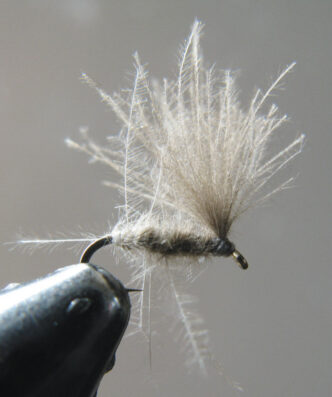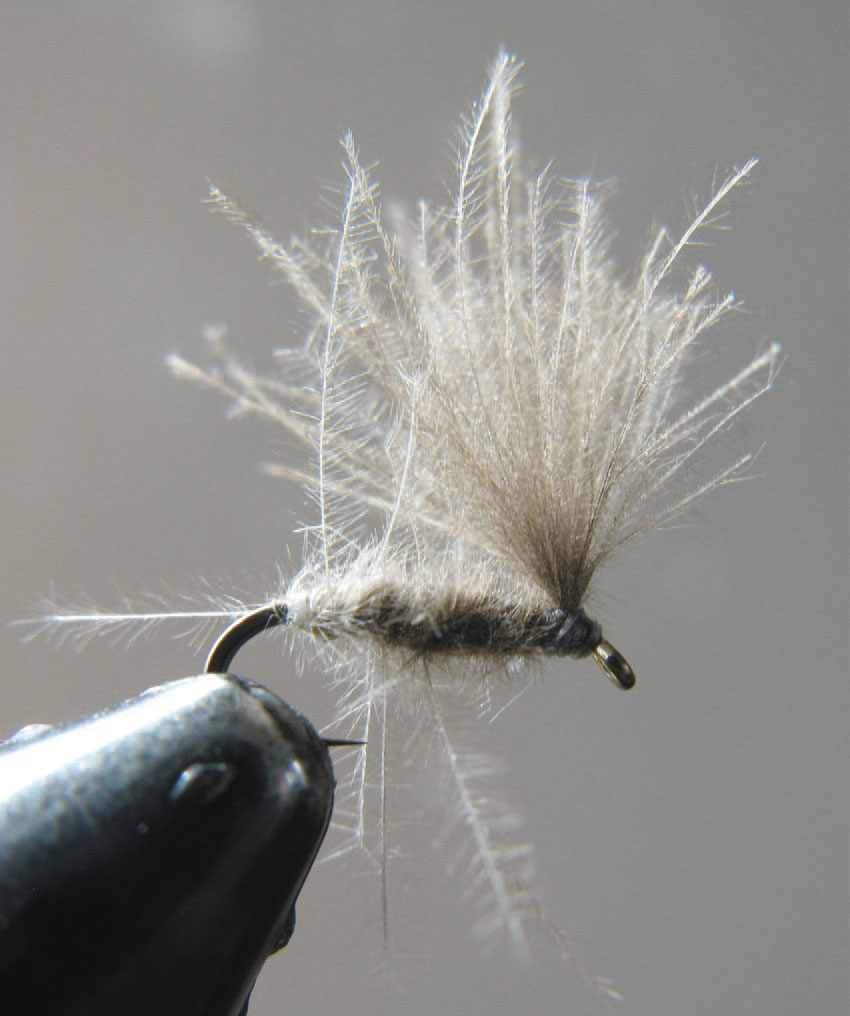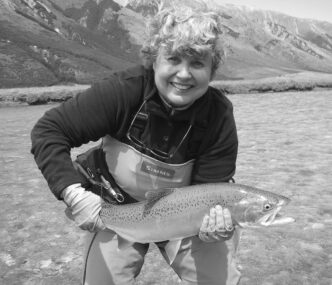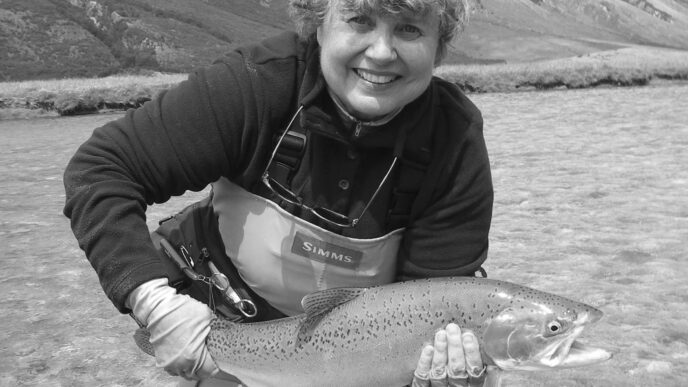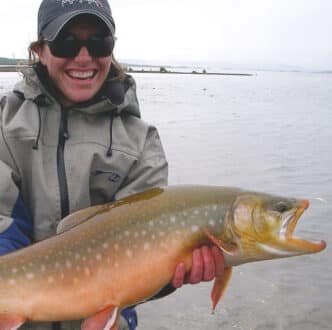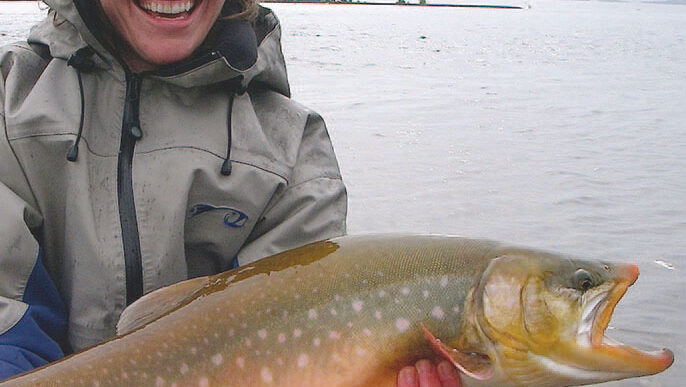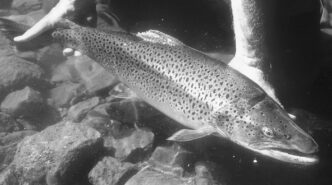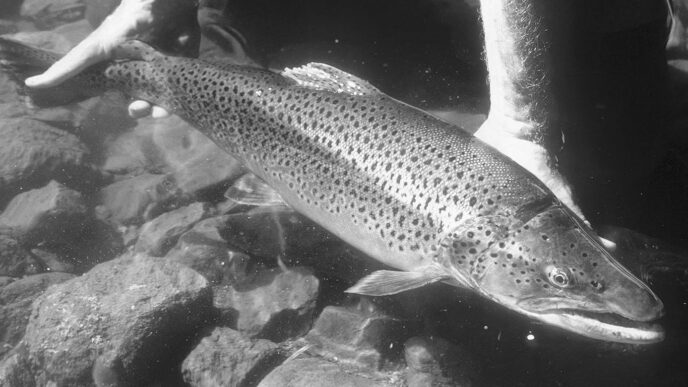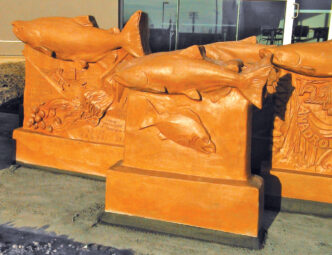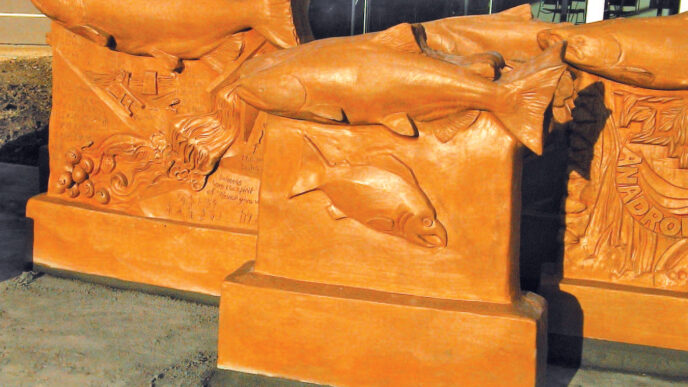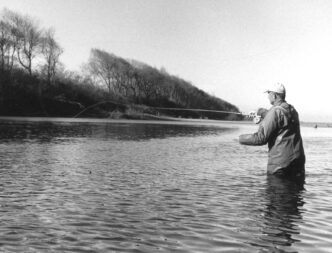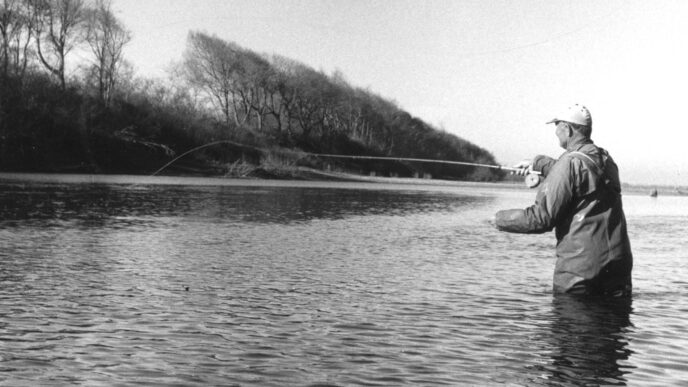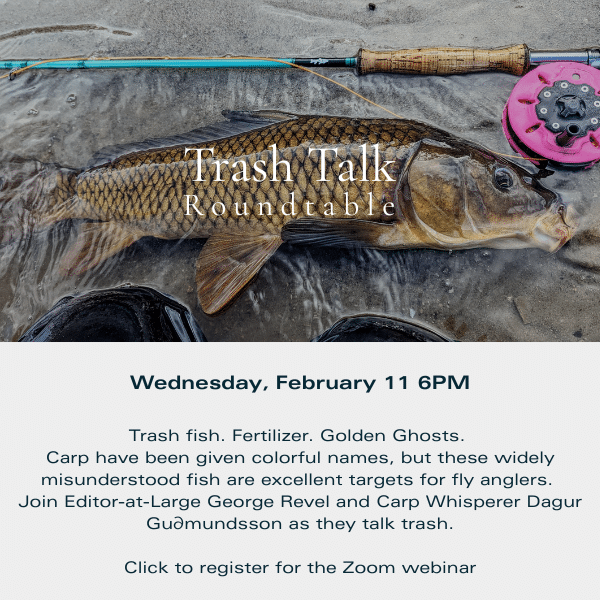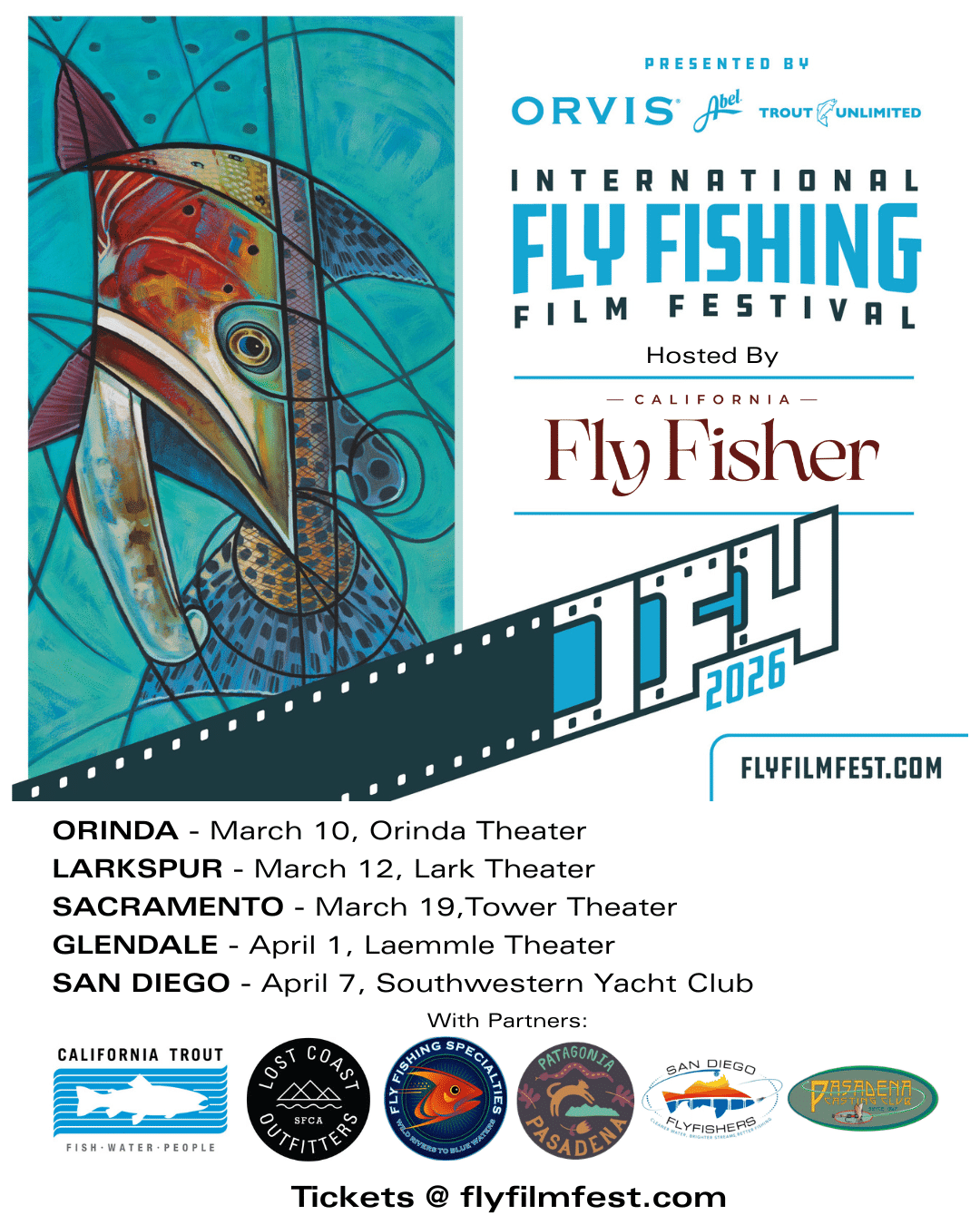I swing my duffel bag up onto the ice chest, right there beside the waders and passel of rods, when the feeling creeps up on me, catching me off guard.
Maybe it’s because I’m loading gear into a new vehicle, one I’m still getting used to after driving the last one the equivalent of ten laps around the world.
But suddenly I find myself struggling. What’s it mean, yet again, to go fishing?
An odd question — considering the source. Stalled beneath the door of the hatchback, I dismiss the notion that this uneasy state of mind has anything to do with heading off alone. This deep into it, I’ve stopped troubling myself with the implications that after all these years — nay, let’s be real about it, after all these decades — I still often end up fishing on my own. Despite family, fellowship, and fraternity, sometimes you just can’t locate a compadre, and going solo means that, just as in surfing, you’re committed to the game — not for any sort of status or emotional feedback, but because the game is good and, more than anything else, you just want to play.
Eventually, you just kind of get used to the company.
So what’s come over me now? In motion again between driveway and house — a rental, mind you, which suggests its own brand of disenchantment — I watch myself, a character in a story, as I attend to a host of final details: the maps, camera, sunblock, binoculars. The new New Yorker and Turgenev’s The Torrents of Spring. Maybe I need a new dog. Or a television. Or maybe this anxiety and irritation reflect a response to the hectic chatter of daily life, a pronounced shift in the face of my sense that there’s never enough time, that the list already looks so lengthy that a deal with death or the devil might well be in line.
A lot of chance of that, I decide, pawing through my daypack for keys, cash, Altoids, sunglasses, bifocals — and the stash of new flies the doctor, Bruce Milhiser, suggested I check out online.
It occurs to me, anyway, that I’ve already started to slow down, begun to pay attention to the here and now. I’m going fishing. I need this. Life’s grown filled with demands, details, distractions — and once again, I see how often I find myself pulled every which way, unable to discern which path offers the greatest reward, a genuine sense of enlargement. I run from one thing to the next, tempted by luster, fame, the makings of love. I don’t know what I want — until I find myself near another river trembling with trout — at which point all of the extraneous longings and desires suddenly slip away and my heart trills O sole mio.
Still, what of that? I ask myself, slipping in behind the wheel, not quite able to shake my questioning mood. Might not there be more to life — much more — than following the soundings of one’s vibrating sternum? Can I possibly approach some sense of enlightenment without lifting desire above the flailings of the heart? Is there any point to any of this if I can’t delineate the Jungian archetypes crowding my fervent dreams?
The fallacy in all such thinking, I remind myself, reaching the end of the driveway, is the assumption that I might matter — even a little bit — beyond the temporary sensations of my temporary life.
It’s only then, I notice, the fruit trees just beginning to bloom.
Two hours later, I’m someplace far different from where I began. The bad news is, I feel even worse than I did before leaving.
Across the river and beyond the first stand of wind turbines, I begin to suffer the sensation that I’m out here all alone. The sensation is rich, scary, intoxicating; I recognize it as I would the voice of one of my own sons. Aimed down a drainage to yet another river ahead, I indulge the arc of all of our lives: like Su Tung-po’s geese alighting on the snow, I’ll leave, at best, a trace of my passage. At seventy-five miles an hour on a sun-swept state highway between stands of oak and ponderosa pine, I recall in rapid succession this same disturbing sensation from other moments in my life: alone in the Baja desert; in a hotel room in Johannesburg, South Africa; that time in Eureka, California; another on Rock Creek in Montana; again in my own bedroom following a breakup with a chemist who vaporized my dreams. The world, goes the logic, has absolutely no care whatsoever where I am or whether I exist. I am alone. My existence matters naught.
Then, on the river, a single hour later, there’s a subtle change. Deep in the canyon, it’s as if the shift in light recalibrates my interest in what’s around me — the river, the sparrows, the cant of the willows in the swirling afternoon breeze. I pull into a turn-out above a favorite hidden run. I’m alone, all right. We all are. What’s the big deal about that?
The only sorrow, I think, is that today of all days, I can’t expect to find the hatch I’m here to find. Too much sun; too much breeze and blue sky. In my mind, I picture the line-up of new flies prescribed by the doctor, a funky all-CDC thing called the IOBO. It Oughta Be Outlawed, goes the story, was sort of an accident, a Hans Weilenmann pattern tied incorrectly by Jack Tucker back in Pennsylvania. The thing looked like nothing more than a “ball of fluff ” — but when cast over some snooty Eastern trout, it fooled fish. The name came later: The fly was so easy to tie and caught so many fish that — well, you get how it goes.
And at that point, I figure we may all be alone, but at least we’re all in it together.
Two days later, I wake to cloud cover — the change in weather I’ve been hoping for since I arrived. It’s not that the fishing’s been slow. But as long as I keep getting trout to take the Skwala Stone tight to the bank or to grab my swinging soft hackles, I’m not going to learn anything new. And if that’s the case, shouldn’t I be on my way? Shouldn’t I make better use of the precious time?
But where the last two mornings have broken clear and cold, with frost on the axe handle and the water jug plugged by ice, today feels mild, moist, rich with the promise of bugs.
Will it happen? I wonder.
The wood pile’s low, but I go ahead and split what remains, then build a fire that will last well into the morning. There’s no hurry — none, that is, as long as I ignore a deadline looming, a pile of papers waiting at home to be graded. If this thing’s going to happen, it won’t start before ten, maybe well after noon. What a life — a way to spend a morning, waiting for some bugs that may or may not hatch. It’s luxurious, is what it is, I think, carelessly watching sparks thrown into the air.
Today’s question? What’s the fishing going to be like. That’s really about it — not a thing more. I stare at the fire, losing myself in the flames, the smoke, the sound of wood turned to heat and light. I drift to the stove and check on my oatmeal. I pour myself another cup of coffee. A lovely morning, I think. A beautiful fire.
This shit oughta be outlawed,I decide. For how can any of this possibly matter? A morning like this and I can neglect all work? All responsibilities and duties? For what? What could possibly matter enough that I spend my time camped along a river, waiting for bugs to hatch, fish to feed. So that — what? — I might catch some trout, enjoy them dancing on the end of my line?
Is that all there is to it?
Can this possibly make the world a better place to live?
It all takes longer than I anticipate. Noon comes and goes — and then up against the cloud cover, I see the swallows, darting in a dance old as time.
Maybe it’s only curiosity that brings us back again and again. What will happen this time? I drive along the river, stopping to try a few favorite spots, certain I’ll find what I’m looking for if the hatch really comes off. Yet there’s still the sense, the tension, that one place might be better than the next — a thought that can drive the best of us absolutely crazy. I end up downstream at a bridge where I’ve seen the Blue-Winged Olives before — and as the sky lowers and rain begins to fall, I spot a single rising fish and decide, instantly, here’s where I’ll make my stand.
It’s a fine little fly, the IOBO is, even if it isn’t much to look at. That first fish keeps rising in a slick of quiet water just out of the current, and when I put the fly there, the trout immediately eats it. After a lot of foot-long fish, I’m startled by the weight and strength of this one. Add a few inches, and they double in size. A few more inches, and they’re good trout by any measure you devise.
When the rain turns briefly to hail, there’s a fury of bugs and feeding fish that feels almost dangerous in its intensity. The IOBO turns to paste pretty quickly — but the line-up in my vest is solid, and I take my time and twice tie on new flies while letting the water in front of me rest. The next three fish aren’t as big as the first, which is only to say I’ve already got the one I really wanted, and now it’s just fishing as good as it gets. Even after the hatch stops, just like that, and the river goes quiet, I get two more fish to rise and eat, two good fish, because, the truth is, that’s still the point of all of this after all of this time.
IOBO, I muse, when I finally reel up my line. That’s a pretty good name. That’s a pretty good fly. The world might not be any better — but the fishing, at least, leaves it no worse off than I found it.
IOBO
By Jack Tucker
Hook: Mustad 94840, size 12 to 18; 94859, size 20 to 24
Thread: 6/0 or 8/0, color to match CDC
Body/Wing: one CDC feather, color of your choice
Step 1: Start your thread and tie in a single CDC feather by the butt at the bend of the hook.
Step 2: Advance the thread to the hook eye. Gather the CDC barbules into hackle pliers or your moistened finger tips. Wind the feather forward, creating a slender, segmented body.
Step 3: After tying off the body, create a wing by holding the barbule tips upright and building a thread dam at its base. Don’t fuss. This really is a ragged looking fly — “a ball of fluff” accurately describes it. If there was ever a fly that demonstrated completely the impressionism inherent in the sport of fly fishing, this is it. And that’s another reason why it oughta be outlawed.
Scott Sadil



